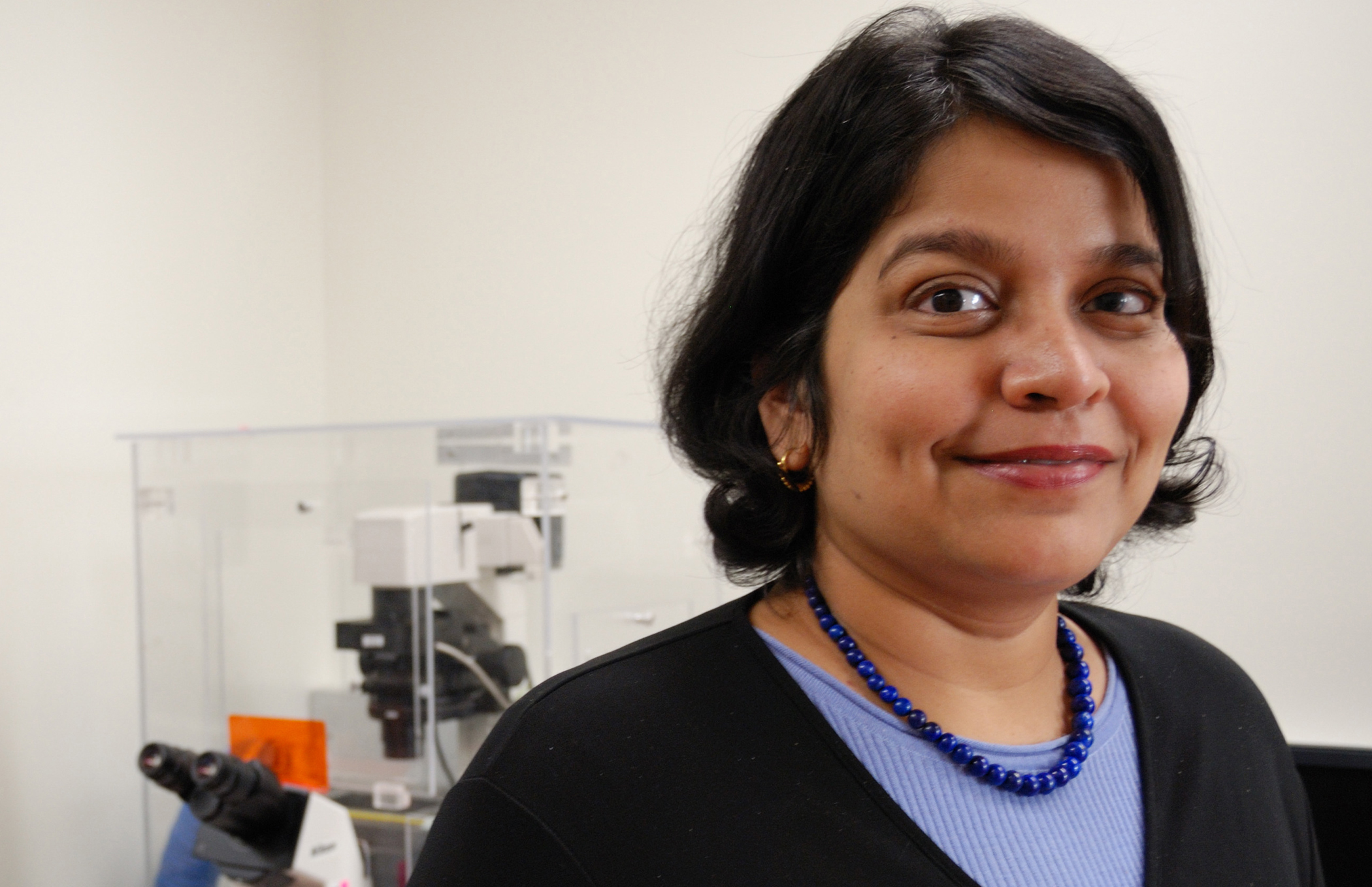Assistant professor's National Science Foundation CAREER grant will help investigate cell migration

An assistant professor in the Virginia Tech College of Engineering has won a $451,000 National Science Foundation Faculty Early Career Development (CAREER) award to study the movement or migration of cells under complex environments and in the presence of conflicting stimuli.
Padma Rajagopalan, an assistant professor in the department of chemical engineering and a core faculty member with the Virginia Tech–Wake Forest University School of Biomedical Engineering and Sciences, will use the five-year, $451,379 grant to understand the fundamental aspects of cell migration. The results from these studies could provide new insights into tumor metastasis, wound healing and developmental biology, Rajagopalan said.
The CAREER grant is the National Science Foundation’s most prestigious award, given to creative junior faculty likely considered to become academic leaders of the future.
“Stimuli that modulate and direct cell locomotion can be chemical, mechanical, electrical, or optical in nature,” said Rajagopalan. “The cells experience various chemical stimuli due to changes in protein concentrations within a tissue. Changes in tissue elasticity and stiffness represent varying mechanical environments.
Rajagopalan will seek to understand how different and potentially conflicting signals are processed by a cell in order for it to make a decision in the directionality and extent of motion.
Because of the inherent complexity of in vivo systems, Rajagopalan’s research will seek to develop a class of engineered interfaces that will be used as biomimetic substrates to study cell migration. The overall goal is to design polymeric interfaces that exhibit dual and opposing chemical and mechanical gradients and to monitor cellular locomotion and responsiveness on these substrates. Together, these studies will reveal insights into the simultaneous effects of chemical and mechanical stimuli on cellular response.
The grant’s educational component will weave biomaterials research concepts into education and outreach. Rajagopalan will introduce a laboratory module for ethnically under-represented female students that focus on cell-biomaterial interactions, thereby helping the students gain insight into formulating a scientific problem, understanding how to design an experiment, conducting experiments, and analyzing data.
In fall 2009, Rajagopalan was named as lead investigator of three grant studies totaling more than $1 million that could lead to the creation of engineered tissues that mimic the human liver. It is believed that the liver mimics could eventually form the basis for extracorporeal liver-assist devices.
Rajagopalan received her bachelor’s of science and master’s degrees from the Indian Institute of Technology, Kharagpur, and her Ph.D. from Brown University.
For more stories on National Science Foundation funded research at Virginia Tech, see
- “Virginia Tech research expenditures grow”
- “Assistant professor's National Science Foundation CAREER grant will help understand cell cycle model”
- “Cornel Sultan joins growing list of CAREER awardees”
- “Cancer therapy using unique imaging and delivery system is focus of National Science Foundation CAREER Award”




